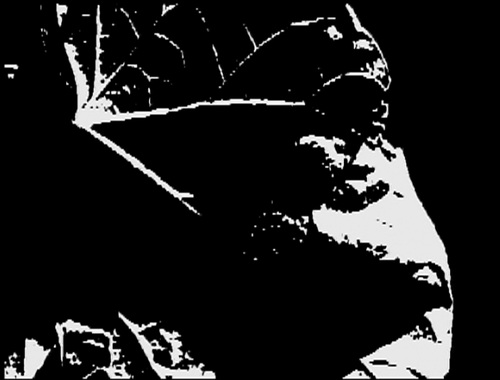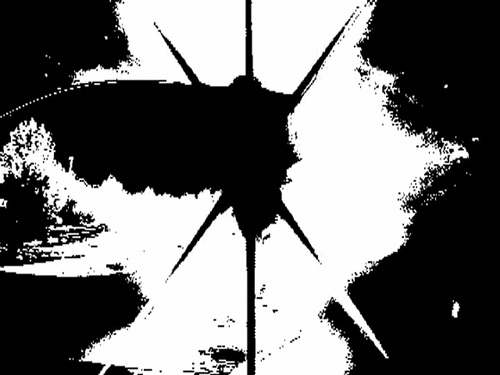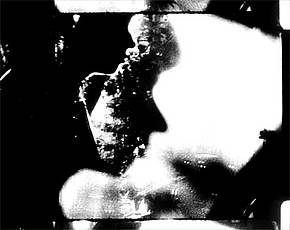Light Fantastic [THE LIGHTED FIELD]
From the Chicago Reader (April 29, 1988). Note: The Andrew Noren stills are copyrighted by his estate. — J.R.
THE LIGHTED FIELD
*** (A must-see)
Directed by Andrew Noren.
I’m a light thief and a shadow bandit. I deal in retinal phantoms. Film is illusion, period, however you choose to see it — shadows of human delights and adversities or raging conflicts of emulsion grains. We see only “films” of films, as all of our sight and sensing is illusion, the phantom movies of our encounter with the world, which, remember, is equally phantom, trompe l’oeil of that clown and ghostmeister, the sun.
The lovers, light and shadow, and their offspring space and time are my themes, working with their particularities is my passion and delight. — Andrew Noren
The difference between narrative and nonnarrative filmmaking is a little bit like the difference between team sports and individual exercise. In contrast to a collective game with a beginning, a middle, and an end, personal exercise tends to be more rhythmically repetitive, involved more with process and with cycles than with development, and moves with a steadier pulse that eschews the more unpredictable dynamics of drama and suspense.
Andrew Noren’s lovely 59-minute The Lighted Field — part five of his ongoing work The Adventures of the Exquisite Corpse, which has engaged him over the past two decades — belongs mainly to the nonnarrative realm. Read more




